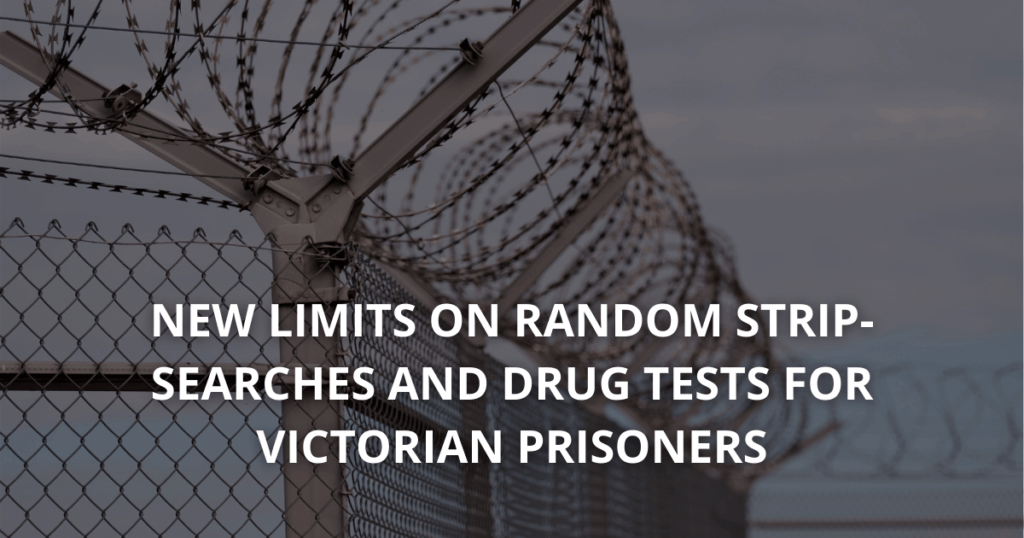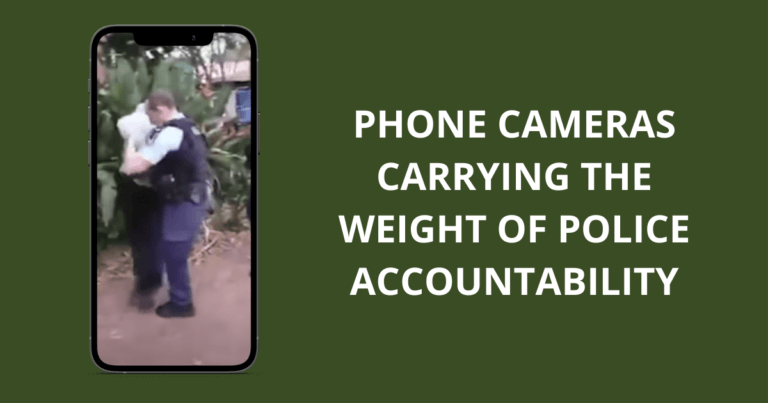A Victorian court has found that human rights considerations had not been taken into account when prison officials established rules allowing for strip searchings of prisoners when undergoing drug tests.
In Minogue v Thompson [2021] VSC 56, the Victorian Supreme Court held that some random strip searches and urine tests were incompatible with Victorian law.
Dr Craig Minogue brought the actions under the State’s Charter of Rights, something unique to the State. The Australian Capital Territory and Queensland both have Human Rights Acts, however, all other states fall short of legislating the rights of its citizens.
Random Strip Searches and Urine Samples
On 4 September 2019, prison officers required Dr Minogue to undergo a random alcohol and drug test. This involved a strip-search and providing a urine sample. Upon his querying the lawfulness of this, the General Manager of Barwon Prison told the prisoner that it was a random general test that 5% of the prison population is required to submit to each month.
On 1 February 2020, Dr Minogue was once again required to undergo a random drug test. After protesting the lawfulness, Dr Minogue submitted to the strip search and urine sample.
On 18 February 2020, the prison required Dr Minogue to submit to a strip search before and after a visit from his solicitor.
Dr Minogue brought the actions against the Governor of Barwon Prison, the Secretary to the Victorian Department of Justice and Community Safety under both the Corrections Act 1986 (Vic) and the Charter of Human Rights and Responsibilities Act 2006 (Vic).
The Jailhouse Lawyer

Craig William John Minogue received a sentence of life imprisonment after his involvement in the 1986 Russell Street Bombings which took the life of a 21-year-old Constable and left 22 people injured.
Two years later, Minogue killed multiple murderer Alex Tsakmakis in the yard and he received a concurrent life sentence.
Since his incarceration began, the dyslexic and illiterate Minogue learnt to read and write. In 2005 he completed his Bachelor of Arts degree with honours from Deakin University. He then obtained admission as a PhD student at La Trobe University. In 2012, Minogue received a PhD in applied ethics, and human and social sciences from La Trobe University. His PhD is not publicly available, reportedly due to public safety concerns for prisoners and Minogue himself.
Incompatible with Dr Minogue’s rights
Justice Melinda Richards in the Supreme Court held that the random urine tests and strip-searches were unlawful.
In relation to the urine tests, Justice Richards held that while they were authorised under s29A of the Corrections Act, “proper consideration was not given to relevant human rights in making the directions, in breach of s 38(1) of the Charter”. Further, she held that the directions were “incompatible with Dr Minogue’s right to privacy, in s 13(a) of the Charter, and his right to be treated humanely and with respect for the inherent dignity of the human person, in s 22(1) of the Charter, in breach of s 38(1) of the Charter”.
The strip-searches that occurred before his urine tests were also held to be unlawful. Justice Richards held those searches were not authorised under the Corrections Regulations because there was “not reasonable grounds to believe that they were necessary for the security and good order of the prison”. Further, those strip-searches were incompatible with his human rights in breach of s38(1) of the Charter.
The strip-searches on 18 February however were deemed lawful by Justice Richards as they were necessary for the security and good order of the prison.
A Failure to recognise human rights
Justice Richards found the corrections officials who had made the rules and guidelines about drug and alcohol testing had not taken into account relevant human rights.
“There was no examination of the nature and extent of the ‘degrading’ impact of urine testing, and no evaluation of the effectiveness of the random testing regime. Nor was there any consideration of less restrictive means available,” she stated in her judgement.
She added the testing process “is inherently demeaning”.
The arbitrary nature of drug testing also received criticism from Justice Richards. She noted that Minogue had no history of drug use.
In more than 30 years in prison, he had never returned a positive result.
More rights for Victorian Prisoners
This judgment will likely force Victorian Corrections to alter their regulations to better work alongside the Victorian Charter of Human Rights. Victorian Prisoners will hopefully face less risk of random strip-searches and urine samples when not necessary for the security and safety of the prison.
Unfortunately for interstate prisoners, these protections will not be afforded. New South Wales does not have a Charter of Human Rights or the like. Therefore NSW prisoners won’t get coverage under this new judgement.
It is hoped that this finding will encourage NSW Parliament to legislate more rights for Prisoners. They are vulnerable to attacks on their fundamental human rights while imprisoned.
If your rights have been violated while in the custody of Police or Corrections, then contact us. O’Brien Criminal and Civil Solicitors are specialists in defending human rights and in suing law enforcement authorities.






